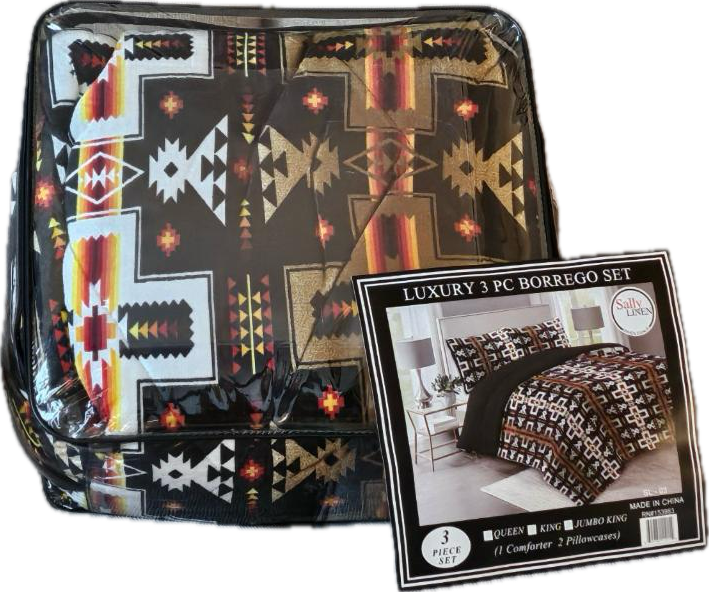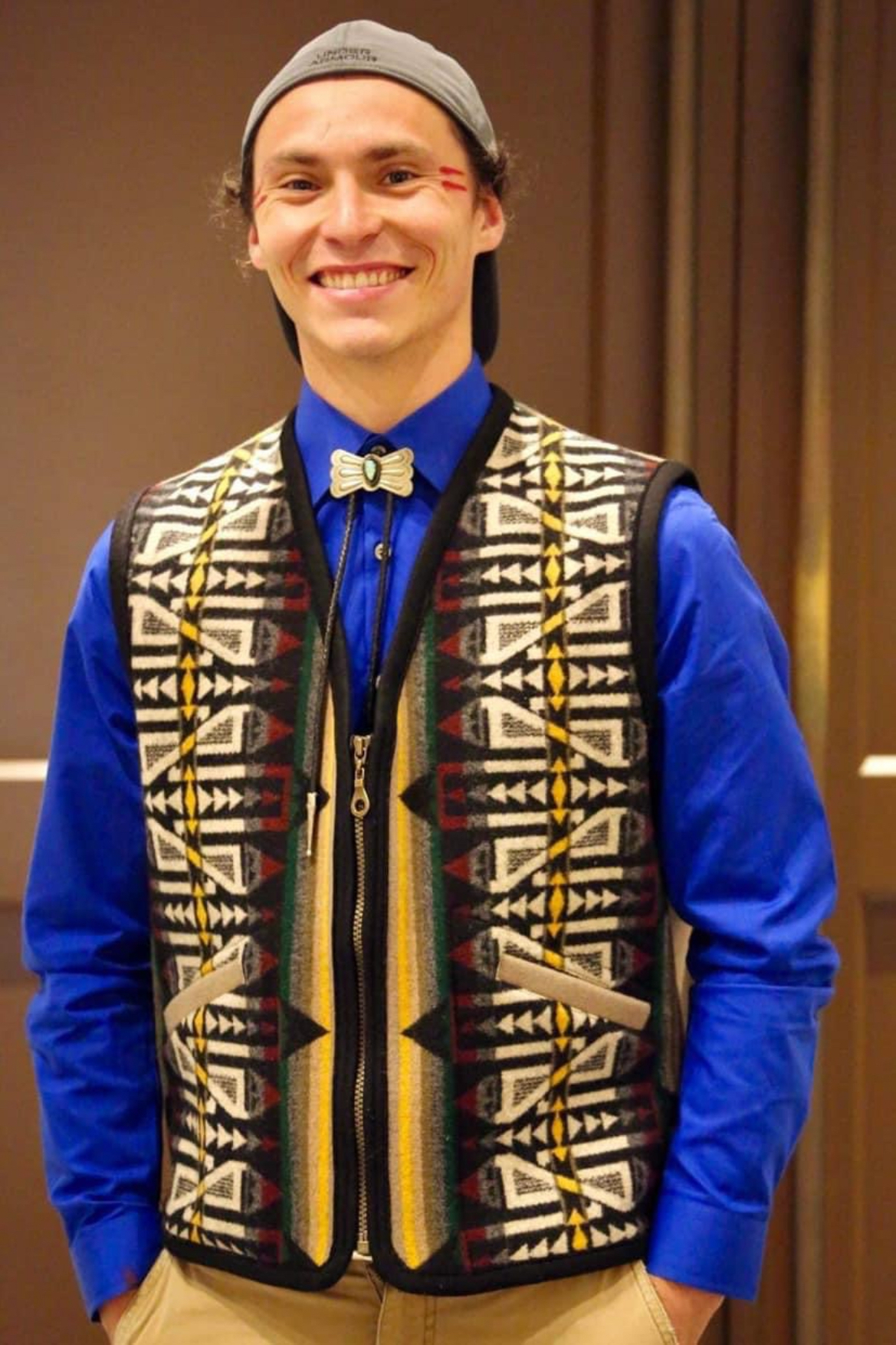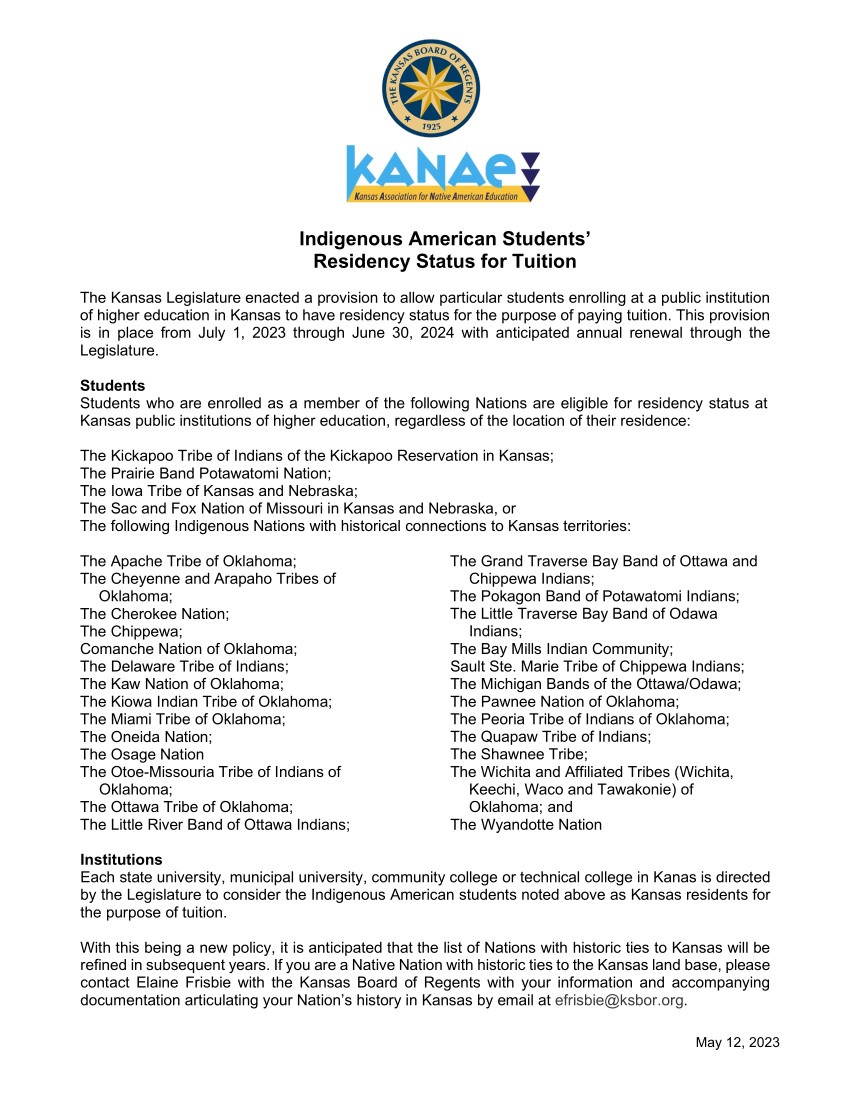FrontPage
now browsing by category
Welcome to the Elders Circle!
kìkayàk (elders)
òkànkwèphatuwàk (group in a circle)
Wëli Newiyal! (Happy New Year!)
Welcome to The Elders Circle, a new forum of the Elders Committee for sharing information with our fellow tribal members.
If you are a senior citizen (55+) and a member of the Delaware Tribe of Indians, we invite you to join our monthly meetings at Tribal Headquarters or on Zoom.
Elders Committee
Meetings
The Elders Committee meets monthly on the first Tuesday at 1:00 P.M. in the Family & Children’s Services building, located at Tribal Headquarters, 5100 Tuxedo Blvd, Bartlesville, OK.
If you can’t make it in person, please join us on Zoom! To attend the meeting by Zoom, email your request to delawareeldercouncil2023@gmail.com and you will receive instructions on how to connect.
Elder Committee Activities
Donations
We appreciate donations to the Elders Committee. Donations benefit our elder community by providing opportunities to participate in activities as well as providing programs that help our elders. In January, be on the lookout to purchase raffle tickets to win a beautiful comforter set donated by Delaware Elder Beverly Chafin. In addition, Sondra Boone donated $500 for the elder community and Billie Jean Sheshey, another Delaware Elder, donated 48 sets of hat and gloves to distribute to Delaware Elders at the Christmas party.
Wanìshi ta (thank you very much) to everyone who donated!
Raffle
In January, don’t forget to buy raffle tickets to win this beautiful king size comforter set (pictured below)! Tickets can be purchased by contacting Elder Committee members or by emailing the Elder Committee at delawareeldercouncil2023@gmail.com
Trips
In December we explored the Woolaroc Museum & Wildlife Preserves’ Wonderland of Lights followed by a trip to Braums.
Interested in joining us on the next trip? Then join the Elders Committee! If you’re 55+ and a member of the Delaware Tribe of Indians, you’re eligible to attend our Elders Committee.
Contact Us
Senior (55+) Delaware tribal members can contact our committee by email at delawareeldercouncil2023@gmail.com or follow us on Facebook at dtieldercommittee.
We look forward to growing our elder community! Join us at our 2024 monthly meetings on Tuesdays: January 2, February 6, March 5, and April 9 at 1:00 P.M.
Elders Committee Officers:
Chair Beverly Hicks
Vice Chair Kay Anderson
Secretary Connie Falleaf
Treasurer Susan Cade

Tristen Tucker Spearheads Environmental Progress For the Delaware Tribe
By Celeste Amadon
The Delaware Tribe is delighted to announce the hiring of Tristen Tucker as the Tribe’s new Environmental Program Director. Tucker’s dynamic blend of professional expertise, cultural commitment, and community-focused approach makes him an ideal leader to steer our community towards a greener and more sustainable future. Tristen brings a fresh perspective and a committed approach to our Tribe’s environmental initiatives, which he sees translating directly to the health of the Delaware people. His leadership signals a promising future for the Delaware Tribe in environmental stewardship and food sovereignty. His first goal is to make our tribal headquarters a model of environmental friendliness. He has planned initiatives such as establishing pollinator gardens and planting trees around the campus. These are not just aesthetic enhancements but are in fact crucial steps towards our community’s ecological balance and health. These efforts symbolize a deep commitment to creating a sustainable and healthy environment for our community. Native people have always had a connection to the land and to the stewardship of resources and the Tribe’s environmental program aims to reinforce this cultural priority.
A graduate of Rogers State University with a degree in Environmental Conservation, Tristen has been deeply immersed in the cultural activities of the Tribe. He plays an active role on the Cultural Preservation Committee, and is involved with the Lenape language revitalization effort, including teaching traditional songs and dances. His service on the Pow Wow Committee and his involvement in significant tribal events, such as last year’s poignant repatriation and reburial of Ancestors’ remains, underscores his dedication to our heritage.
Tristen extends an invitation to all Tribal members to engage with him on this crucial mission. He emphasizes that sustainability is a team sport and encourages everyone to reach out with ideas, inquiries, or any input that can contribute to the Tribe’s environmental goals. So please consider stopping by our new Environmental Program Director’s office so he can get to know you, or email him at ttucker@delawaretribe.org.
From the January 2024 issue of the Delaware Indian News. For more from this issue, as well as a full archive of past issues, click here.
 />
/>
Inaugural Delaware Indian News Self-guided Movie and Book Club: Killers of the Flower Moon
Celeste Amadon
The Delaware Indian News warmly invites our readership community to join in our new self-guided movie and book club. Club recommendations are for recently released or published movies, television series, and books that resonate with Indigenous experiences. Club selection postings include a list of discussion topics and/or links to articles about the work to facilitate your thinking and engaging discussions about our stories, their portrayal, and the power of narrative in shaping understanding and awareness.
2024 Selection #1
Our first club selection is Killers of the Flower Moon. The film, nominated for several Golden Globe awards and a strong contender for Academy Awards, is an adaptation of the best selling non-fiction book Killers of the Flower Moon: The Osage Murders and the Birth of the FBI by David Grann, which is also strongly recommended. It tells the tragic story of the 1920s murders of Osage Nation members in Oklahoma.
Streaming Availability
Killers of the Flower Moon is available on Apple TV+ and other streaming platforms, making it accessible for our community members to view before the discussion. The novel is available on Amazon.com and the Audible audiobook version makes excellent driving entertainment.
Key Discussion Questions:
- How does the film balance the portrayal of Native American history with the demands of a mainstream movie narrative? It reportedly does an excellent job of representing Osage culture, but it allso exploits Native tragedy for art/profit (DiCaprio was paid $40M).
- In what ways did the extensive involvement of Osage Nation consultants impact the film’s authenticity?
- The film’s focus on Ernest Burkhart (DiCaprio) has been a point of contention. How does this choice affect the representation of the Osage community’s experiences?
- Despite the casting of many (around 65!) Native actors, the film is primarily a creation of non-Indigenous filmmakers. How does this influence its storytelling and perspective?
- The film has been critiqued for lacking broader historical context about Indigenous genocide, oppression, and land theft. Context the nonfiction novel on which it is based did a much better job of provided.How does this impact its message?
- What are the implications of the film’s portrayal of Native American history for contemporary Indigenous representation in cinema?
Interesting Articles
NPR: How Osage people stepped in to be sure ‘Killers of the Flower Moon’ got things right
Slate: Killers of the Flower Moon Is Not the Story an Osage Would Have Told. You Should Still See It.
The New York Times: In Indigenous Communities, a Divided Reaction to ‘Killers of the Flower Moon’
The Wall Street Journal: Killers of the Flower Moon’ Puts New Indigenous Stars on the Map
Institute for Tribal Environmental Professionals Offering 2024 Summer Internships
The Institute for Tribal Environmental Professionals (ITEP) is offering several 8-week paid internships for summer 2024. The programs on offer include Air Quality, Indigenous Climate Change, and Water Resources and Land Management. Requirements are as follows:
- U.S. Citizen
- Identify as an Indigenous person (preferred)
- Full-time college student during Spring 2024
- 2.5 cumulative GPA
- Majoring in an environmental or related field
- Strong interest in working with Tribal and Indigenous communities
- Other requirements listed on each program
There are more details in the flyer shown below, and you can also send email to kim.shaw@nau.edu for more information or visit http://www7.nau.edu/itep/main/Internships to apply.
Statement from Chief Brad KillsCrow Concerning Tribal Tags
November 10, 2023
As you may be aware, the Oklahoma Highway Patrol at the direction of Governor Stitt has started issuing tickets to motorists with tribal tags who do not live within the boundaries of their Tribe’s jurisdiction. This should not affect Delaware Tribal members with Delaware Tribal tags issued through Cherokee Nation. The Cherokee Nation has a compact with the State of Oklahoma therefore it is our understanding that this new directive from the State does not apply to any tags, including Delaware tags, issued by Cherokee Nation. If you are pulled over by OHP and issued a citation for having tribal tags, please contact my office immediately.
Brad KillsCrow, Chief
NOTICE: Candidates Sought for Trust Board Vacancy
Interested candidates should submit their letter of interest and resume to the Trust Board to be considered. Please send letters of interest and resume to mholley@delawaretribe.org This position shall remain open until filled.
Indigenous American Students’ Residency Status for Tuition Enacted by KS Legislature
The Kansas Legislature enacted a provision to allow particular students enrolling at a public institution of higher education in Kansas to have residency status for the purpose of paying tuition. This provision is in place from July 1, 2023 through June 30, 2024 with anticipated annual renewal through the Legislature.
Students
Students who are enrolled as a member of the following Nations are eligible for residency status at Kansas public institutions of higher education, regardless of the location of their residence:
The Kickapoo Tribe of Indians of the Kickapoo Reservation in Kansas
The Prairie Band Potawatomi Nation
The Iowa Tribe of Kansas and Nebraska
The Sac and Fox Nation of Missouri in Kansas and Nebraska
or
The following Indigenous Nations with historical connections to Kansas territories:
The Apache Tribe of Oklahoma
The Cheyenne and Arapaho Tribes of Oklahoma
The Cherokee Nation
The Chippewa
Comanche Nation of Oklahoma
The Delaware Tribe of Indians
The Kaw Nation of Oklahoma
The Kiowa Indian Tribe of Oklahoma
The Miami Tribe of Oklahoma
The Oneida Nation
The Osage Nation
The Otoe-Missouria Tribe of Indians of Oklahoma
The Ottawa Tribe of Oklahoma
The Little River Band of Ottawa Indians
The Grand Traverse Bay Band of Ottawa and Chippewa Indians
The Pokagon Band of Potawatomi Indians
The Little Traverse Bay Band of Odawa Indians
The Bay Mills Indian Community
Sault Ste. Marie Tribe of Chippewa Indians
The Michigan Bands of the Ottawa/Odawa
The Pawnee Nation of Oklahoma
The Peoria Tribe of Indians of Oklahoma
The Quapaw Tribe of Indians
The Shawnee Tribe
The Wichita and Affiliated Tribes (Wichita, Keechi, Waco and Tawakonie) of Oklahoma
The Wyandotte Nation
Institutions
Each state university, municipal university, community college or technical college in Kanas is directed by the Legislature to consider the Indigenous American students noted above as Kansas residents for the purpose of tuition.
With this being a new policy, it is anticipated that the list of Nations with historic ties to Kansas will be refined in subsequent years. If you are a Native Nation with historic ties to the Kansas land base, please contact Elaine Frisbie with the Kansas Board of Regents with your information and accompanying documentation articulating your Nation’s history in Kansas by email at efrisbie@ksbor.org.
Update For Delaware Veterans
VA is now exempting eligible American Indian and Alaska Native Veterans from copayments for health care and all urgent care visits received on or after January 5, 2022.
This policy implements Section 3002 of the Johnny Isakson and David P. Roe, M.D. Veterans Health Care and Benefits Improvement Act of 2020.
Veterans seeking copayment exemption should submit copies of VA Form 10-334 and official tribal documentation to begin receiving this new benefit.
The copayment exemption:
- Retroactively reimburses eligible American Indian and Alaska Native Veterans from copayments for health care and all urgent care visits received on or after January 5, 2022.
- Eliminates future copayment collection of copayments for health care and all urgent care visits for eligible American Indian and Alaska Native Veterans.
This new regulation intends to encourage American Indian and Alaska Native Veterans to seek medical care through VA. This regulation also makes health care more accessible and allows VA to better deliver care and health benefits these Veterans have earned through their service to our nation.
Copies of Veteran’ Tribal documentation and VA Form 10-334 can be mailed to:
VHA Tribal Documentation
PO Box 5100
Janesville, WI 53547-5100
Please do not mail original documents. Only copies should be mailed. If Veterans need to make copies of their documentation or need a printed copy of VA Form 10-334, they can request copies at their local VA medical center or clinic.
We are engaging all our VA partners, including tribal, federal, state and local communities, to ensure that all American Indian and Alaska Native Veterans know of this new policy and have the information they need to participate. To learn more, visit www.va.gov/health-care/copay-rates or call 1-800-MyVA411
ARPA Counseling Service Program Application Available Now
The Delaware Tribe of Indians ARPA Counseling Service Program is now open and accepting applications. Please see the application at the link below for details.
UPDATE: ARPA Work Training Aid Program Extended Until December 31, 2023
Application for Work Training Aid
The Delaware Tribe of Indians is pleased to offer assistance for individuals continuing their educational journey. This program is open for individuals pursuing vocational training. Please refer to the following criteria to determine eligibility:
Eligibility:
Aid is limited to areas that lead to certification or increase employability characteristics. Acceptable continuing education/vocational training programs include, but are not limited to:
- Technical Training/Certification
- Plumbing, HVAC Tech, Welding, Auto Mechanics
- Health Certification/Careers
- Sonography, Nursing, Dental Assistant
- Business Certification
- Computer and IT Support, Cybersecurity, Graphic Design, Legal Aide, Bookkeeping
- Applicant pursuing programs that are not listed above are encourage to apply. Special consideration may be taken depending on circumstances and need.
Only COMPLETE applications will be considered for assistance.
This program is funded by the American Rescue Plan Act and provided to you by the Delaware Tribe of Indians. Award recipients can receive up to $4,000 is assistance to be applied to the upcoming academic year, this is not to guarantee every recipient will receive the full $4,000 awarded amount. Application deadline: December 31, 2023.
For further information, please contact ARPA Assistant Manager Sarah Boyd by phone at (918) 337-6590 or by email at sboyd@delawaretribe.org


 D5 Creation
D5 Creation